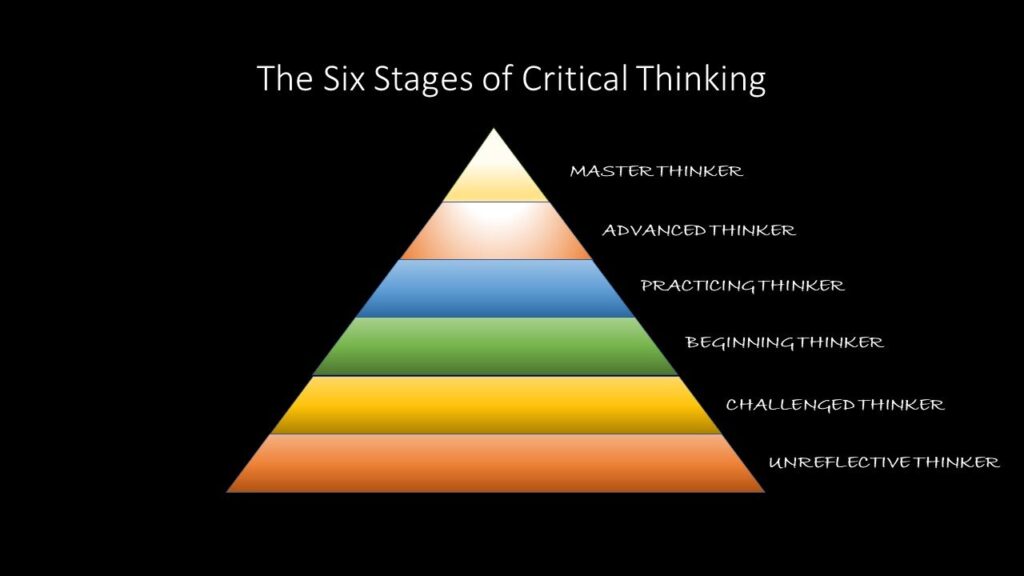In an era defined by rapid change and complex challenges, the ability to think critically and question established norms is more crucial than ever. This article explores the profound impact of questioning authority on fostering critical thinking and driving societal progress. We’ll delve into the essential skills required for effective questioning, examine the benefits of challenging authority figures, and analyze how this mindset contributes to a more transparent and accountable society.
Critical Thinking Skills
Critical thinking is the cornerstone of informed decision-making and intellectual growth. It involves analyzing information objectively, identifying biases, evaluating evidence, and forming well-reasoned conclusions. Developing strong critical thinking skills empowers individuals to navigate complex issues, solve problems effectively, and make sound judgments in various aspects of life.
One key aspect of critical thinking is the ability to ask probing questions. Instead of accepting information passively, critical thinkers actively seek clarification, challenge assumptions, and explore alternative perspectives. This inquisitive nature encourages deeper understanding and a more nuanced view of the world. Furthermore, critical thinking requires intellectual humility – the willingness to acknowledge limitations in knowledge and be open to revising beliefs in light of new evidence.
Questioning Authority

All authority should be questioned. While respecting established institutions and individuals in positions of power is important, it’s equally crucial to maintain a healthy skepticism and critically evaluate their actions and motivations. Blindly accepting authority without question can lead to complacency, injustice, and the perpetuation of harmful practices.
Questioning authority doesn’t necessarily imply disrespect or rebellion; rather, it signifies a commitment to truth-seeking and accountability. By challenging assumptions and demanding justification for decisions, individuals can contribute to a more transparent and equitable society. Moreover, questioning authority encourages innovation and progress by fostering an environment where diverse perspectives are valued and new ideas are explored.
The Importance of Dissent
Dissent plays a vital role in any functioning democracy. It allows for the expression of alternative viewpoints, challenges the status quo, and holds those in power accountable. While dissent may sometimes be met with resistance or opposition, it is essential for safeguarding individual liberties and promoting social progress.
Societal Progress
Questioning authority serves as a catalyst for societal progress by fostering innovation, challenging harmful norms, and driving positive change. When individuals are empowered to critically evaluate existing systems and structures, they can identify areas for improvement and advocate for solutions that benefit society as a whole.
Throughout history, countless advancements have been made possible by individuals who dared to question established beliefs and challenge conventional wisdom. From scientific breakthroughs to social reforms, questioning authority has paved the way for progress in every facet of human endeavor. By encouraging critical thinking and open dialogue, we can create a more dynamic and innovative society that is constantly striving to improve.
Power Structures

Power structures often wield significant influence over individuals and institutions, shaping policies, allocating resources, and influencing public opinion. While power structures are necessary for maintaining order and facilitating societal functions, it’s crucial to critically examine their impact and ensure they operate ethically and transparently.
Questioning power structures involves scrutinizing their origins, motivations, and decision-making processes. It requires identifying potential biases, conflicts of interest, and instances of abuse of power. By holding those in positions of authority accountable, we can mitigate the risks associated with unchecked power and promote a more equitable distribution of influence.
Transparency and Accountability
Transparency and accountability are essential pillars of a just and functioning society. When institutions and individuals operate transparently, they make their actions, decisions, and motivations readily accessible to the public. This openness fosters trust, encourages participation, and allows for effective oversight.
Accountability ensures that those in power are held responsible for their actions and decisions. It establishes mechanisms for addressing wrongdoing, resolving grievances, and ensuring that justice is served. By promoting transparency and accountability, we create a system where individuals feel empowered to voice concerns, challenge injustices, and contribute to a more equitable society.
Conclusion
Questioning authority is not about anarchy or disrespect; it’s about fostering critical thinking, promoting transparency, and driving societal progress. By embracing a mindset of inquiry, challenging established norms, and demanding accountability from those in power, we can create a more just, equitable, and innovative world. All authority should be questioned.



